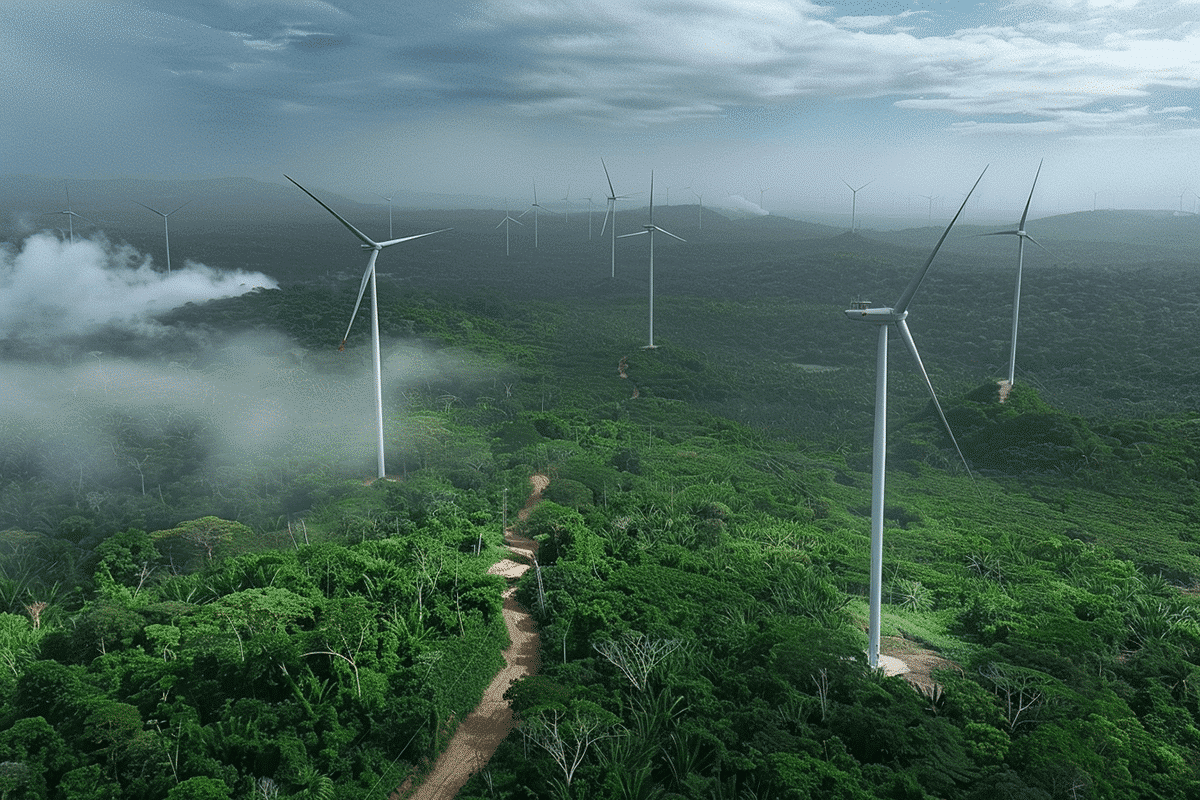In Brazil’s impoverished Northeast, the rugged landscape and recurring drought make the area unsuitable for commercial farming. However, energy companies have discovered a valuable resource in the region: wind. This discovery has led to significant changes in the area, bringing both benefits and challenges to local communities.
The Tale of Two Communities
Cousins Nilson José dos Santos and Geremias da Cruz dos Anjos grew up in neighboring rural communities and have experienced the wind power expansion in vastly different ways. José’s community, Sumidouro, is a recognized quilombo, a community of descendants of Afro-Brazilian runaway slaves. This recognition enabled the community to negotiate effectively with energy companies, resulting in several benefits.
Sumidouro managed to keep the turbines at a distance, ensuring the last house in the community is one mile away from the nearest windmill. The community also secured a community water system, allowing all 48 families to have access to running water. Additionally, the community received a sports court, a cultural and community center, and a shed for farm equipment. In exchange for allowing transmission lines through their land, Sumidouro also obtained funding for research on breeding goats and bees, which are well-suited to the semi-arid climate.
The Struggles of Lagoa
In stark contrast, dos Anjos’ community, Lagoa, also an Afro-descendant quilombo, lacks formal recognition and did not receive similar benefits from the wind company. The 22 families in Lagoa did not benefit from the same level of negotiation and ended up only with the noise from the turbines, which are located 612 yards away from their homes.
Lagoa residents rely on trucked-in water, with dos Anjos’ family spending about $120 a month during the dry season, their biggest expense. The community’s demands for paving roads have gone unmet, and the increased truck traffic has resulted in heavy dust indoors. Additionally, the walls of dos Anjos’ clay block home have developed cracks, which he suspects are caused by the nearby turbine.
Disparities in Recognition and Protection
The significant differences in the experiences of Sumidouro and Lagoa highlight the impact of formal recognition. Only 13% of quilombos in Brazil have official recognition, a process that can take more than two decades. This slow pace contrasts sharply with the rapid licensing and construction of wind farms, leaving many communities without the protections and benefits that recognized communities receive.
Enel Green Power, the Italian energy company behind the wind farm, stated that the construction followed Brazilian law and consulted nearby communities. However, they noted that the wind complex is not in an area recognized as ‘protected’ by relevant authorities. This disparity in recognition and protection has had a considerable impact, particularly in Brazil’s Northeast, where nearly 70% of quilombolas, or residents, live.
Growing Opposition Movement
The challenges faced by communities like Lagoa have fueled a growing resistance movement against wind energy projects. Environmental and social groups, most led by women, have united under the umbrella group Nordeste Potencia to advocate for better practices in wind development. In January, they published a list of proposed best practices for developers, government bodies, the judiciary, and funding agencies.
In February, a group of women voiced their concerns to federal agencies in the capital. The following month, thousands of women farmers protested against wind projects in Areial, Paraiba, highlighting issues such as noise, dust, and restrictions on planting and grazing areas. The Institute for Socioeconomic Studies in Brazil found that small farmers receive minimal compensation for leasing their land for wind energy and face a lack of transparency from wind companies regarding energy production.
Ensuring Fair and Equitable Development
The experiences of Sumidouro and Lagoa illustrate the complex reality of wind power expansion in Brazil’s Northeast. While some communities have successfully negotiated benefits, others have been left to cope with the negative impacts. The growing opposition movement underscores the need for inclusive and transparent development practices that consider the needs and rights of local communities. As Brazil continues to expand its wind energy production, ensuring fair and equitable treatment for all communities will be essential for sustainable and just development.




